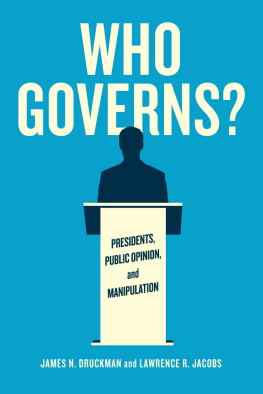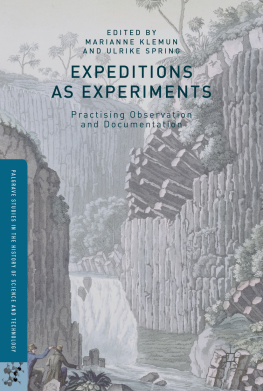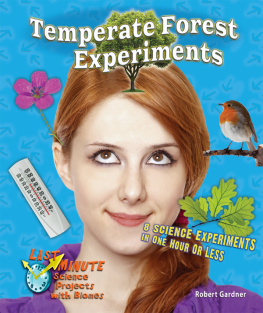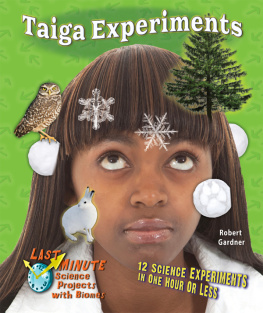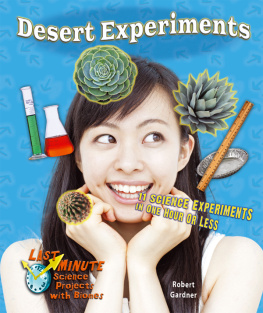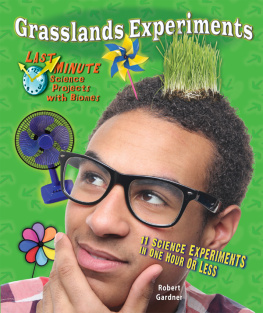Experiments are a central methodology in the social sciences. Scholars from every discipline regularly turn to experiments. Practitioners rely on experimental evidence in evaluating social programs, policies, and institutions. This book is about how to think about experiments. It argues that designing a good experiment is a slow-moving process (given the host of considerations), which is counter to the current fast-moving temptations available in the social sciences. The book includes discussion of the place of experiments in the social science process, the assumptions underlying different types of experiments, the validity of experiments, the application of different designs, how to arrive at experimental questions, the role of replications in experimental research, and the steps involved in designing and conducting good experiments. The goal is to ensure that social science research remains driven by important substantive questions and fully exploits the potential of experiments in a thoughtful manner.
James N. Druckman is the Payson S. Wild Professor of Political Science at Northwestern University. He was elected to the American Academy of Arts and Sciences and, with Donald Green, helped found the Experimental Research section of the American Political Science Association.
James N. Druckman
University Printing House, Cambridge CB 2 8 BS , United Kingdom
One Liberty Plaza, 20th Floor, New York, NY 10006, USA
477 Williamstown Road, Port Melbourne, VIC 3207, Australia
314321, 3rd Floor, Plot 3, Splendor Forum, Jasola District Centre, New Delhi 110025, India
103 Penang Road, #0506/07, Visioncrest Commercial, Singapore 238467
Cambridge University Press is part of the University of Cambridge.
It furthers the Universitys mission by disseminating knowledge in the pursuit of education, learning, and research at the highest international levels of excellence.
www.cambridge.org
Information on this title: www.cambridge.org/9781108845939
DOI: 10.1017/9781108991353
James N. Druckman 2022
This publication is in copyright. Subject to statutory exception and to the provisions of relevant collective licensing agreements, no reproduction of any part may take place without the written permission of Cambridge University Press.
First published 2022
A catalogue record for this publication is available from the British Library.
Library of Congress Cataloging-in-Publication Data
Name : Druckman, James N. author.
Title : Experimental thinking : a primer on social science experiments / James N. Druckman, Northwestern University Illinois.
Description : Cambridge, United Kingdom ; New York, NY : Cambridge University Press, 2021. | Includes bibliographical references and index.
Identifiers: LCCN 2021038954 (print) | LCCN 2021038955 (ebook) | ISBN 9781108845939 (hardback) | ISBN 9781108994064 (paperback) | ISBN 9781108991353 (epub)
Subjects: LCSH : Social sciences--Experiments. | Social sciences--Research. | Experimental design. | BISAC: POLITICAL SCIENCE / General
Classification: LCC H 62 . D 77 2021 (print) | LCC H 62 (ebook) | DDC 300.72/4--dc23
LC record available at https://lccn.loc.gov/2021038954
LC ebook record available at https://lccn.loc.gov/2021038955
ISBN 978-1-108-84593-9 Hardback
ISBN 978-1-108-99406-4 Paperback
Cambridge University Press has no responsibility for the persistence or accuracy of URLs for external or third-party internet websites referred to in this publication and does not guarantee that any content on such websites is, or will remain, accurate or appropriate.
To Marj and Dan Druckman
Contents
Figures
Tables
Preface
Experiments are a central methodology in the social sciences. Scholars from every discipline regularly turn to them. Practitioners rely on experimental evidence in evaluating social programs, policies, institutions, and information provision. The last decade has seen a fundamental shift in experimental social science due not only to its emergence as a primary methodology in many disciplines but also to technological advances and evolving sociological norms (e.g., open science). This book is about how to think about experiments in light of these changes. It argues that designing a good experiment is a slow-moving process (given the host of considerations) that is counter to the current fast-moving temptations available in the social sciences. The book includes discussion of the place of experiments in the social science process; the assumptions underlying different types of experiments; the validity of experiments; the application of different designs (such as audit field experiments and conjoint survey experiments); how to arrive at experimental questions; the role of replications in experimental research; and the steps involved in designing and conducting good experiments. The goal is to ensure that social science research remains driven by important substantive questions and fully exploits the potential of experiments in a thoughtful manner.
Acknowledgments
In some ways, I have been writing this book for much of my life. At an early age, my mom, Marj Druckman, taught me how to systematically address problems and think about them from multiple angles. Meanwhile, my dad, Dan Druckman, exposed me to the social sciences and taught me how to think about experiments. He even invited me to work with him on my first experiment. I thank them both and dedicate this book to them. I also thank the many students, teachers, and colleagues who have shaped my thinking on experiments. Dozens of students have challenged me to think of experiments in new ways; they also have shown me how to creatively use experiments to address a wide range of questions. Several current and former students assisted in the writing of this book including Robin Bayes, Adam Howat, Suji Kang, Maya Novak-Herzog, Richard Shafranek, Andrew Thompson, and Anna Wang. Jake Rothschild insightfully commented on the book for which I am extremely appreciative.
I also thank my early mentors particularly Ken Janda, Skip Lupia, and the late Mat McCubbins for teaching me about social science methods and experiments. Mat read the first chapter and, in his typical fashion, asked, Whats your point?, thereby forcing me to make it clearer. I will forever miss such direct but crucial feedback. I am indebted to several colleagues who have talked with me about experiments and/or encouraged me to flesh out my thoughts over the years. A partial list includes Adam Berinsky, Toby Bolsen, Tabitha Bonilla, Cheryl Boudreau, John Bullock, Ethan Busby, Dennis Chong, James Chu, Fay Lomax Cook, Charles Crabtree, Catherine Eckel, David Figlio, Eli Finkel, D. J. Flynn, Jeremy Freese, Laurel Harbridge-Yong, Larry Hedges, Lenka Hrbkov, Shanto Iyengar, Cindy Kam, John Kane, Martin Kifer, Samara Klar, Jim Kuklinski, Thomas Leeper, Neil Malhotra, Leslie McCall, Rose McDermott, Mary McGrath, Luke Miratrix, Dan Molden, the late Becky Morton, Kevin Mullinix, Diana Mutz, Tom Nelson, Dan OKeefe, Mike Parkin, Erik Peterson, Dave Rand, Jenn Richeson, Josh Robison, John Barry Ryan, Monica Schneider, Libby Sharrow, the late Lee Sigelman, Paul Sniderman, Nick Stagnaro, Ben Tappin, Alex Theodoridis, Sophie Trawalter, Lynn Vavreck, Jan Voelkel, Robb Willer, and Teppei Yamamoto. I am particularly indebted to colleagues who read and commented on the book. Adam Levine sent along nearly ten pages of profound comments. This led to substantial revisions, which Yanna Krupnikov, Matt Levendusky, and Rune Slothuus were kind enough to read offering extreme insight and encouragement. This is nothing new as these colleagues have been vital sounding boards for years. The same is true of Don Green, who played a crucial role in supporting this endeavor.


